Hirons is a British-American songwriter, pianist, and visual artist whose music blends introspective lyricism with intuitive, experimental pop. Classically trained in piano and influenced by artists ranging from Rachmaninoff and Astor Piazzolla to Deerhoof and the Beach Boys, she creates songs that are emotionally resonant, layered, and inventive.
Hirons' debut record, Future Perfect, released by Western Vinyl, emerged over several years while balancing a full-time job, functioning as both a personal lifeline and a form of escapism. A breakup record and an exploration of an uncertain future, Future Perfect reflects hope, aspiration, and resilience, while showcasing Hirons' wry, cerebral, and poised artistic voice.
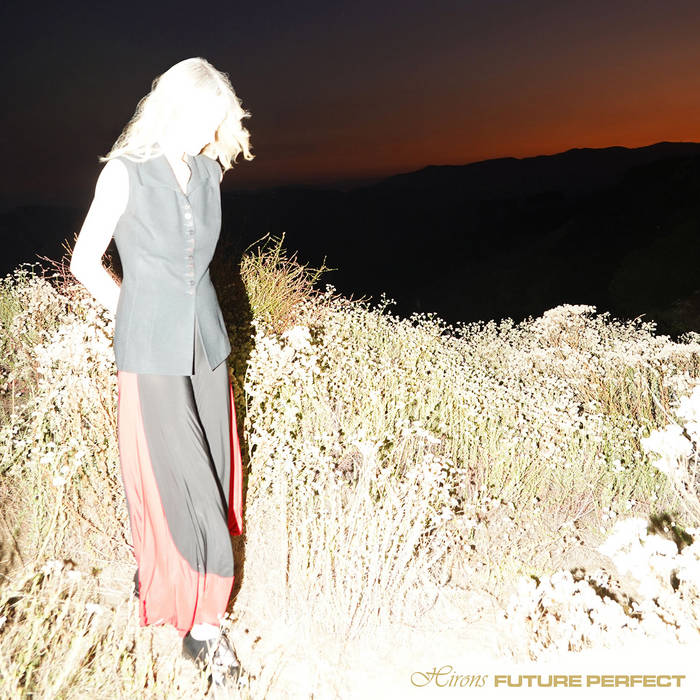
Arina Korenyu: The record touches on "childhood visions and capitalist superstructures." How did those seemingly distant ideas connect in your songwriting?
Hirons: Writing the record actually took place over quite a long period of time, since I was doing it alongside a full-time job. So it was more about checking in with myself whenever I had the chance to write lyrics, and exploring different ideas that felt interesting or meaningful.
When I wrote "Being the Cause"—the song about capitalism's hold on our lives—I was feeling really strung out by my job. Around the same time, I had read an interesting article about how we structure our days and the history of timekeeping in modern life. That combination of ideas really stuck with me.
So there wasn't a specific formula for writing—it was more about following whatever caught my attention or felt like a fertile topic for lyrics. That's really it.
Arina: You describe this as a "breakup record and an uncertain future record." Looking back, how do you think Future Perfect helped you process or move through those experiences?
Hirons: In a way, it was a form of escapism—a way to break free from the monotony of the work I was doing, which I really wasn't enjoying at the time. Writing gave me a chance to connect with a part of myself that felt neglected or malnourished by my day-to-day job. It became a real lifeline, especially when I was feeling the grind of everyday life.
As for the breakup—I was actually working with my ex-partner on the record; he was helping me produce it. So a lot of that emotional processing didn't really happen until the very final stages. He helped me get the record almost to completion, and then we broke up. Finishing it after that became part of that process of closure.
In some ways, I think working on the next record will be another step in that journey—creating something entirely on my own, without his involvement. It wasn't easy at the time, but even then, there was something meaningful about it. It was wonderful to have his help, but it also created this feeling that maybe I needed him to finish the record. So when I was finally able to complete it on my own, that felt really significant—a small but important reminder that I could do it by myself. It was a really nice thing to see.
Arina: Do you also want to try producing on your own going forward?
Hirons: I'm not completely opposed to collaboration, but in terms of having full creative agency, I do like the idea of not having to rely on anyone else.
Music production is still quite a male-dominated world, and there are certain dynamics that seem to come with that, no matter who you're working with. That said, I was quite involved in the production of this record—it was very much a bedroom project, so a lot of the groundwork was already there before I brought him in to help with certain parts.
I see production as something that can play a huge role in shaping the music. It requires a whole different set of skills from songwriting, which I find really fascinating. So while I'd love to have full agency over my music in an ideal world, I also value collaboration—it's interesting to work with people who have that technical skillset, and I don't feel like I need to know everything about production myself. I just find them interesting collaborators—they bring such a different perspective to the process.
Arina: You mention that the EP was the product of several years of "tinkering." How did your relationship with the songs evolve over that time? When you look back at Future Perfect, what do you hear now that you couldn't hear while making it—either musically or emotionally?
Hirons: I think when the music is first released, one of the exciting things about it is that you can't help but hear it through someone else's ears. You start to project yourself into the listener's perspective, knowing that it's out there in the world. That gives you a kind of fresh take on it, almost like you're rediscovering your own songs.
Otherwise, I've had these songs in my back pocket for so long—I started working on some of them five or six years ago. My relationship with the record was quite loose for a while, because I didn't have the time to work on it consistently. I'd come back to it whenever the opportunity arose, and that meant I never had too tight a grip on the songs. They always felt like works in progress, evolving slowly over time.
In a way, that looseness probably helped ease any sense of emotional possession I might have had. But I still feel very close to them. I wouldn't say they've changed emotionally for me, but playing them live has been really interesting. Deconstructing the songs to arrange them for my band—and then hearing them come together in that new form—has been wonderful. It breathed new life into the music, making it feel invigorated again.
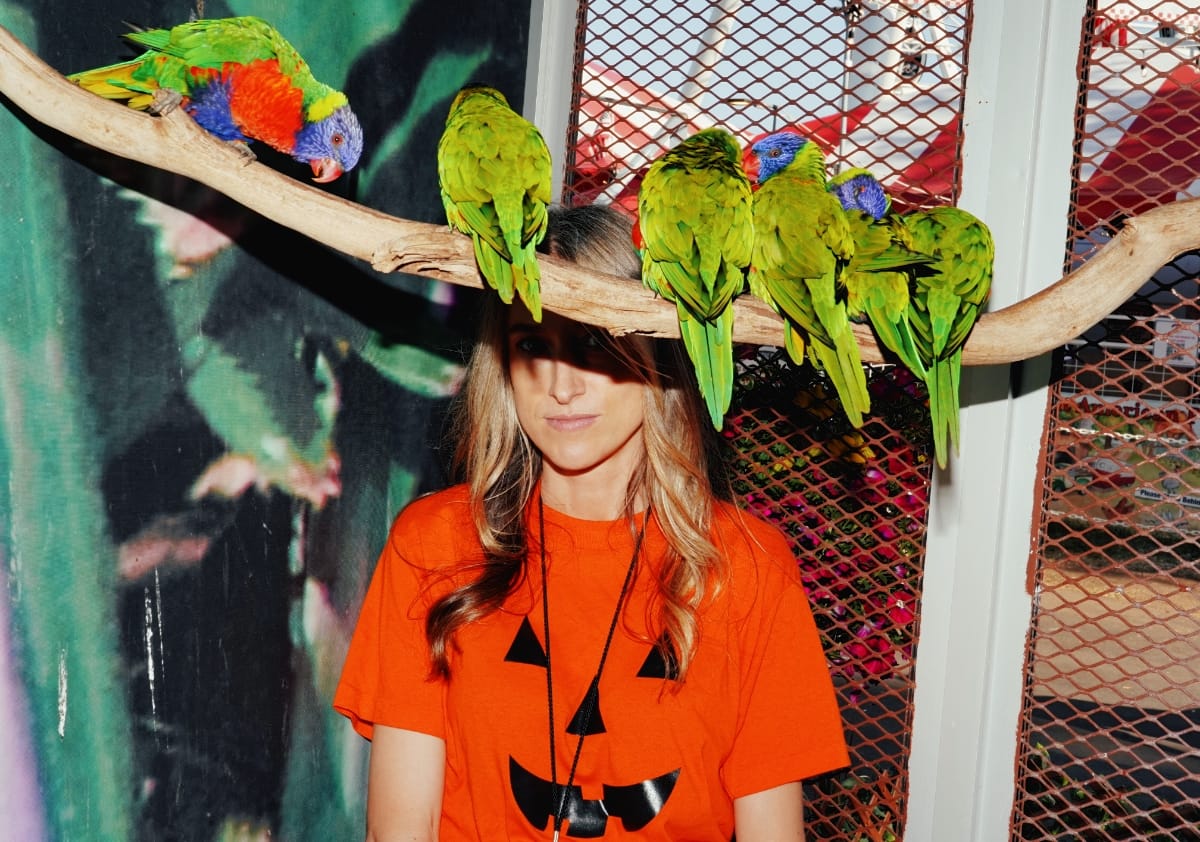
Arina: You're not only a musician but an accomplished visual artist and designer. Do you think your visual sensibility informed the sound or presentation of Future Perfect?
Hirons: I think the clearest connection between my music and my visual art is actually in the way I write songs. I've always played piano and improvised for myself, but when I first started writing songs, everything I did was really dense and complicated. Eventually, though, I found a method that felt much more natural—starting with something simple. I'd begin with a very basic melody and then gradually build layers on top of it. That approach completely opened things up for me.
It's actually quite similar to my design process. In graphic design, you usually start with a single problem or concept—not that the beginning of a song is a "problem," exactly, but you start from something small and then layer and develop it.
Arina: If Future Perfect were an image, what would it look like?
Hirons: If Future Perfect were to be seen visually, I think it would feel a bit like a portfolio snapshot—a collection of different themes and ideas that all felt close to me during its making. In that sense, it's almost like an emotional portfolio.
Arina: Were you formally trained as a musician, or did your understanding of composition come more through self-directed exploration?
Hirons: Songwriting, for me, is definitely a form of self-directed exploration. But I do come from a classical background—I was trained as a pianist. I started taking lessons when I was six and continued until I was about fourteen. Around that age, I decided to stop. I'd been learning piano in a very traditional, structured way, and I never really connected with the grading system. Around the same time, I went away to boarding school, which meant I didn't have regular access to my own piano.
So the relationship with it faded a bit during that period. I'd still play whenever I could—whenever I came across a piano—and I'd just improvise for myself. But it became something more personal and spontaneous rather than structured.
Arina: You've cited Astor Piazzolla, the Beach Boys, and Rachmaninoff as influences—a wildly eclectic mix. Can you describe their specific qualities that attracted you?
Hirons: When I was younger, I actually took pride in how eclectic my taste was. I saw it as a kind of self-expression, a reflection of who I was at the time—especially before I started making my own music.
I think the reason my music taste is so eclectic is because it's always been driven purely by emotion. I've always listened from the heart first. I've never been someone who listens for technicality—though I can appreciate it—it's just never been what draws me in. That probably explains why I gravitate toward artists who are widely seen as great musicians, but also why I can happily listen to what some people might consider "bad" music. If something touches me emotionally, that's all that matters.
I've always loved classical piano—Rachmaninoff especially. He's probably one of the most emotive composers I've ever heard. His music just resonates on such a deep level.
Arina: You use harmonic ambiguity and subtle rhythmic shifts a lot. Are those intentional choices to destabilize pop conventions, or do they arise naturally from intuition?
Hirons: My approach is definitely very intuitive. The way I listen to music—emotionally, from the heart—is the same way I listen to my own songs as I write them. It's not very goal-oriented, generally speaking. That said, if I were to have any kind of goal, it would be to avoid doing something overly conventional. I like to challenge traditional pop sensibilities, or at least play around with them and experiment.
So, yeah—space, experimentation, and intuition—that would be my answer.
Arina: How does your experience as someone growing up in two cultures—British and American—shape your understanding of pop? Do you feel at home in either tradition?
Hirons: I don't really see a clear boundary when it comes to influences from each place. It's really a mix—influences from both countries and beyond, depending on what I've listened to over time.
I do feel a certain sensibility in my creative approach that comes from my time in LA, compared to London. LA was a place where I finally had both the physical space for a piano and the mental space to create. In London, creative pursuits tend to be grounded in pedigree—what you've done, who you know—and while there's a bit of that in LA too, people there are more excited by possibility. They're drawn to interdisciplinary creators and people doing something unique.
Being in LA felt creatively liberating, and I really credit it as one of the reasons I started going down this path. But in terms of influences, especially today, when you can listen to anything from anywhere, I don't see borders. I just absorb all sorts of music from both countries and beyond.
Arina: How do you see your sound evolving from here—are there directions you're eager to explore that differ from Future Perfect?
Hirons: I feel like there's a lot more I could explore in the realm of music you hear on Future Perfect. There's so much of that kind of sound that I can have fun with.
At the same time, my songwriting is very different from the way I improvise at the piano—and in many ways, that improvisation feels very close to me. That's how I've played music my entire life, and I think it's also one of my strengths. They're really two distinct approaches, and I definitely have a strong desire to eventually make a record that finds a way to marry the two, or maybe just create another record that leans more fully into the piano improvisation side of things.
Check out more like this:
 The TonearmArina Korenyu
The TonearmArina Korenyu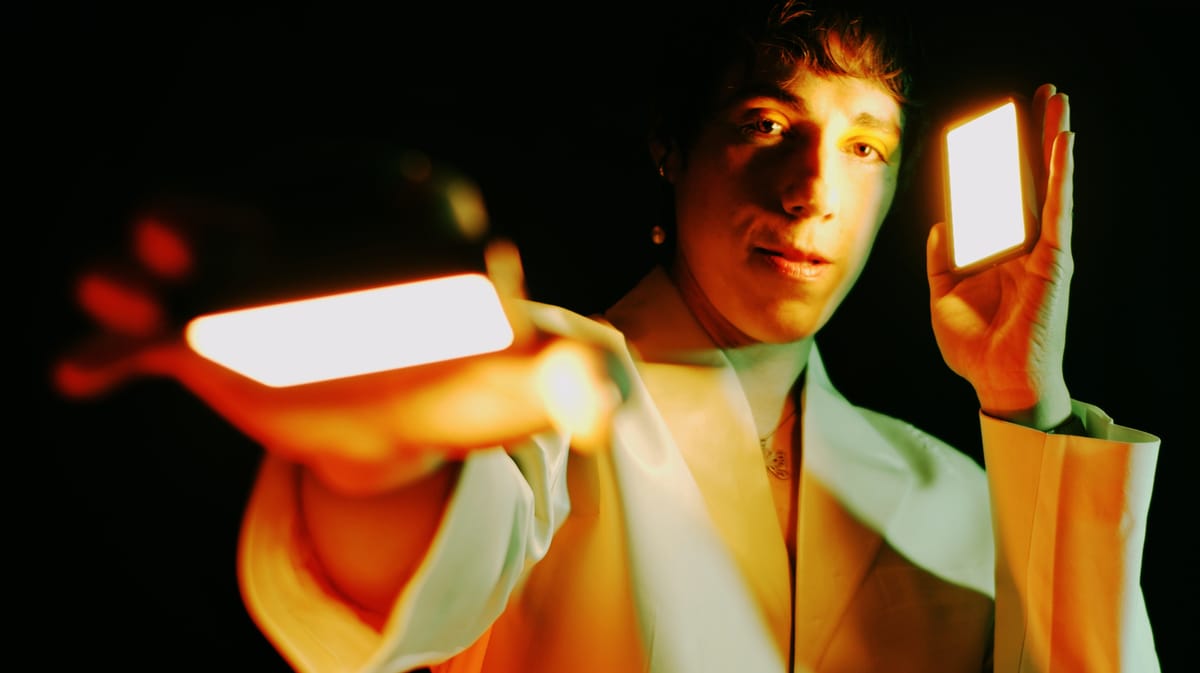
 The TonearmSara Jayne Crow
The TonearmSara Jayne Crow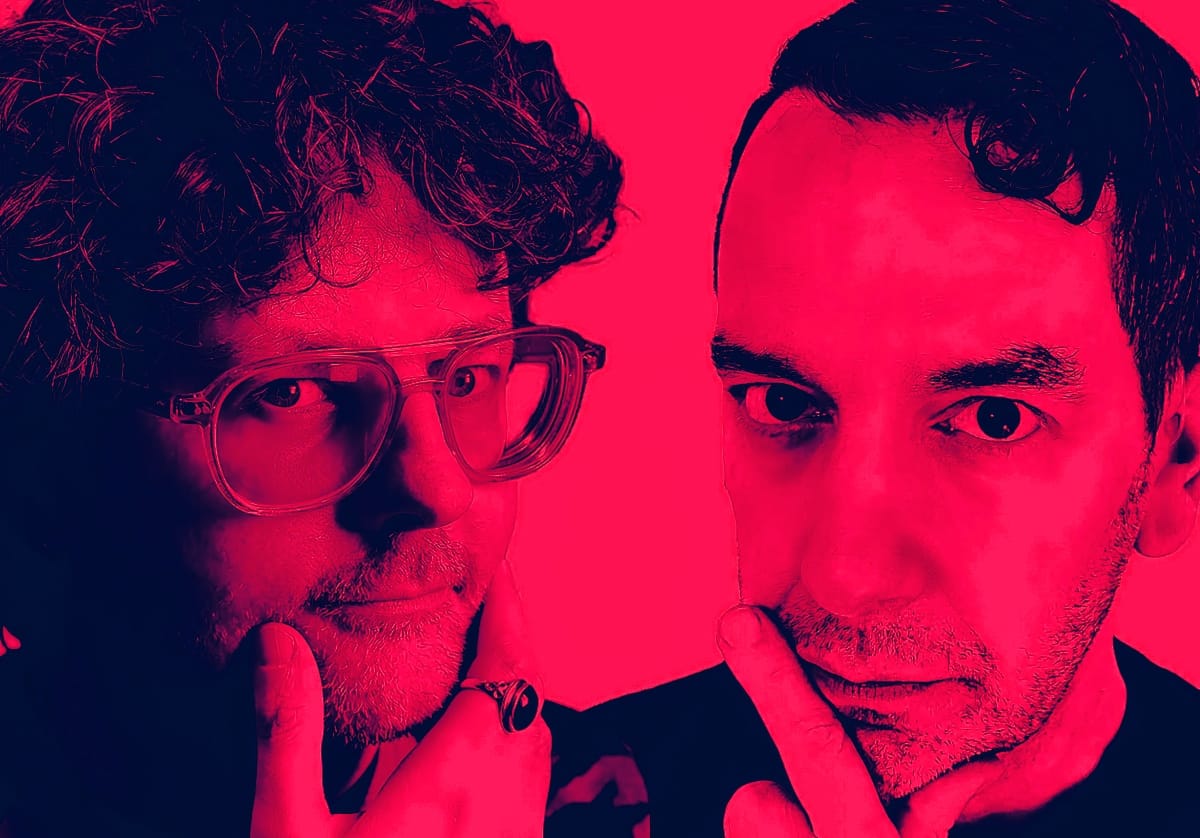


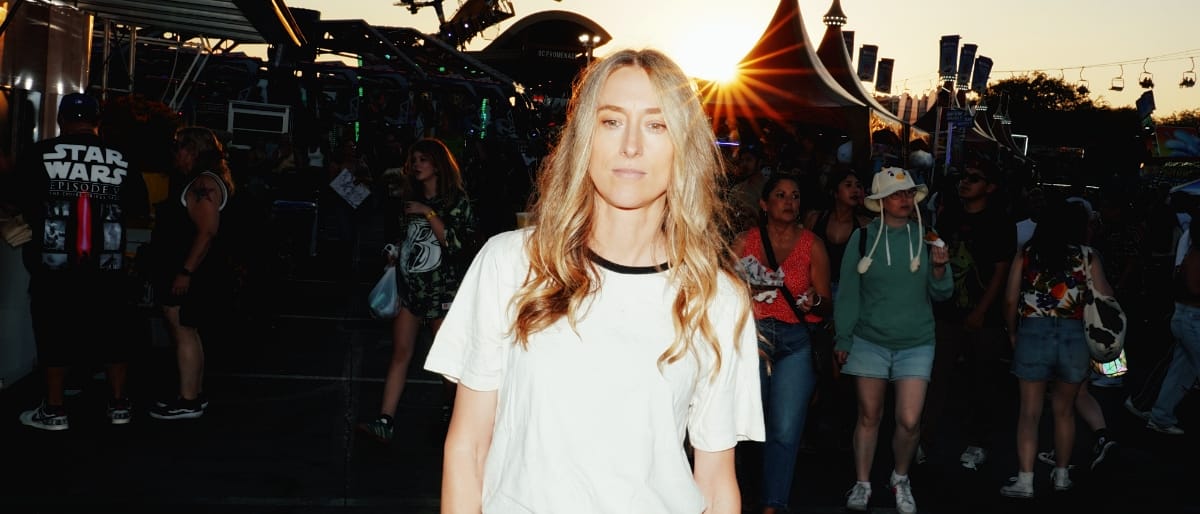

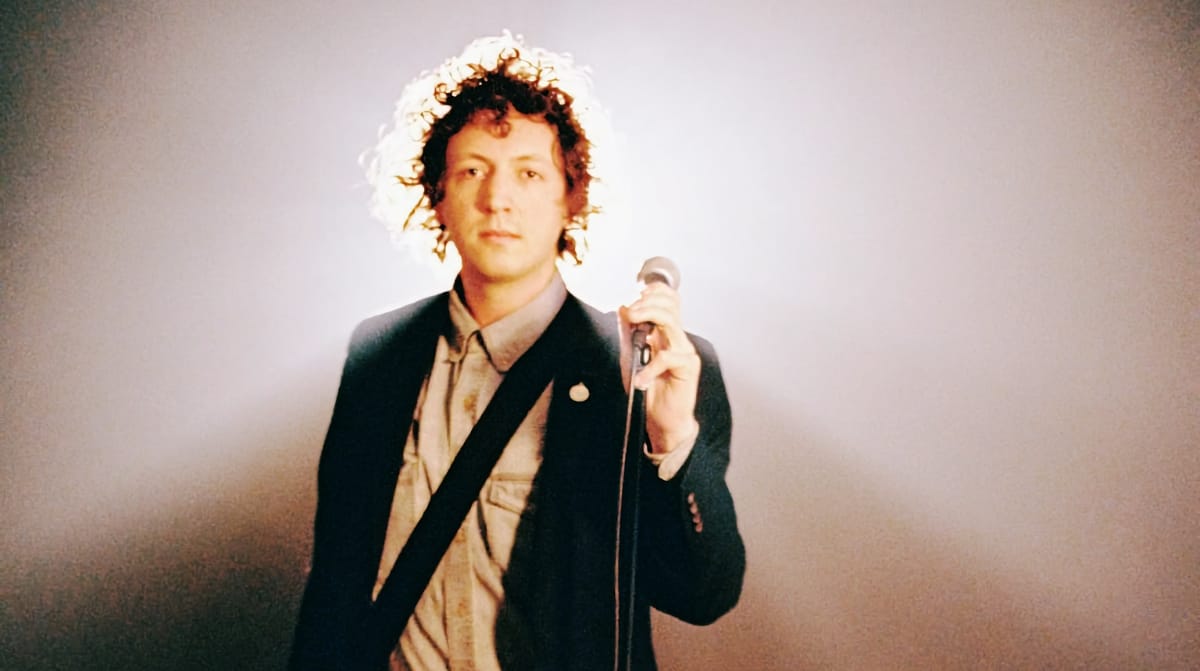

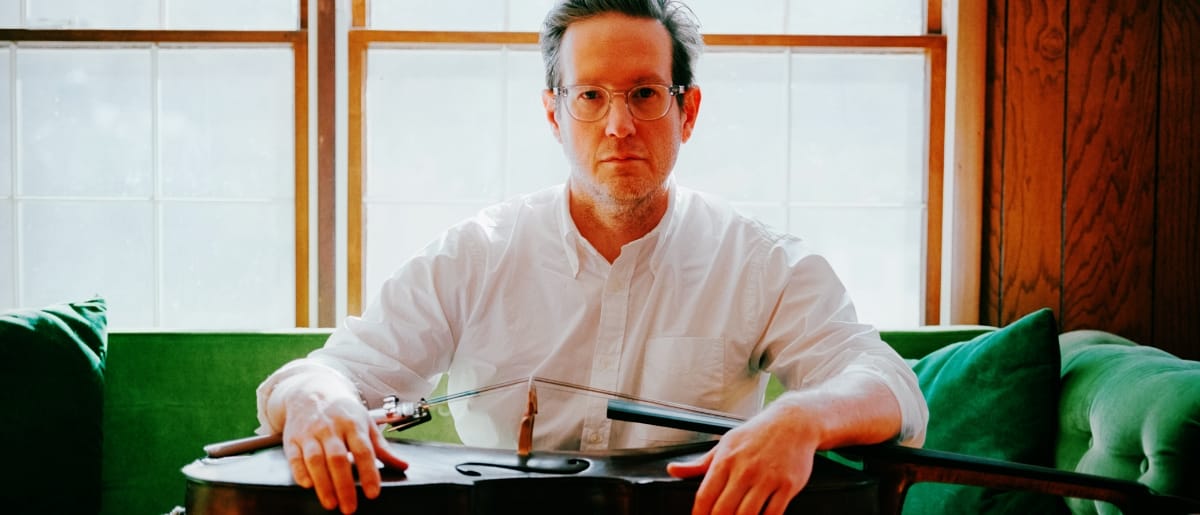
Comments